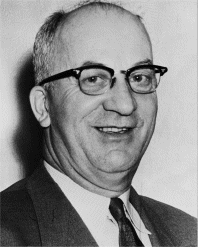Anthony B. Banks
 Tony Banks, one of the first agricultural representatives in Nova Scotia, served in the counties of Colchester, Halifax and Cumberland; a man who believed that management was the key to improving agricultural production, that fanning must be managed as a business if it was to become one of the major industries of the province.
Tony Banks, one of the first agricultural representatives in Nova Scotia, served in the counties of Colchester, Halifax and Cumberland; a man who believed that management was the key to improving agricultural production, that fanning must be managed as a business if it was to become one of the major industries of the province.
Born in Morristown, Kings County, he was educated in Paradise, Annapolis County. Obtaining his high school certificate, he then moved to the United States where for two years he obtained practical experience as a dairy farm worker.
A graduate of the Nova Scotia Agricultural College in 1924 and the Ontario Agricultural College in 1926, his agricultural career included Potato Inspector with the Federal Department of Agriculture, Agricultural Representative, three years as the Director of Agriculture in Newfoundland where his contributions to their agricultural industry were recognized by the King George Silver Jubilee Medal and the King George Coronation Medal, and an Assistant Director of Extension for Nova Scotia. In 1940 he was appointed Superintendent of Agricultural Societies and Exhibitions for the province.
Tony Banks was actively, involved in the establishment of new and innovative ideas - a Farm Management Program for Nova Scotia farmers, Professor of Farm Management at the Nova Scotia Agricultural College. He actively supported the first Artificial Insemination Unit in Canada. He supported and promoted excellence in farming activities - the use of high quality sires, the promotion of good tillage practices through ploughing matches, etc., the development of the Winter Fair at the Nova Scotia Agricultural College to encourage competition and create an unusual learning environment in the feeding and breeding and showing of livestock.
His innovative ways of publicizing new technology included the first pit barbecuing of beef in Nova Scotia. Tony Banks was actively involved in the social life of his community, a member of the Masonic Lodge and a member of the First Baptist Church. He was involved in the golf and curling clubs, and an ardent hunter and fisherman. He took an active part in the management of community organizations.
He was a member of the Agricultural Institute of Canada, American Society of Farm Managers and Rural Appraisers. He was universally trusted, highly respected and stood out as a leader and gracious host both in the rural and urban communities These outstanding qualities are recognized in Atlantic Canada' a Agricultural Hall of Fame.
